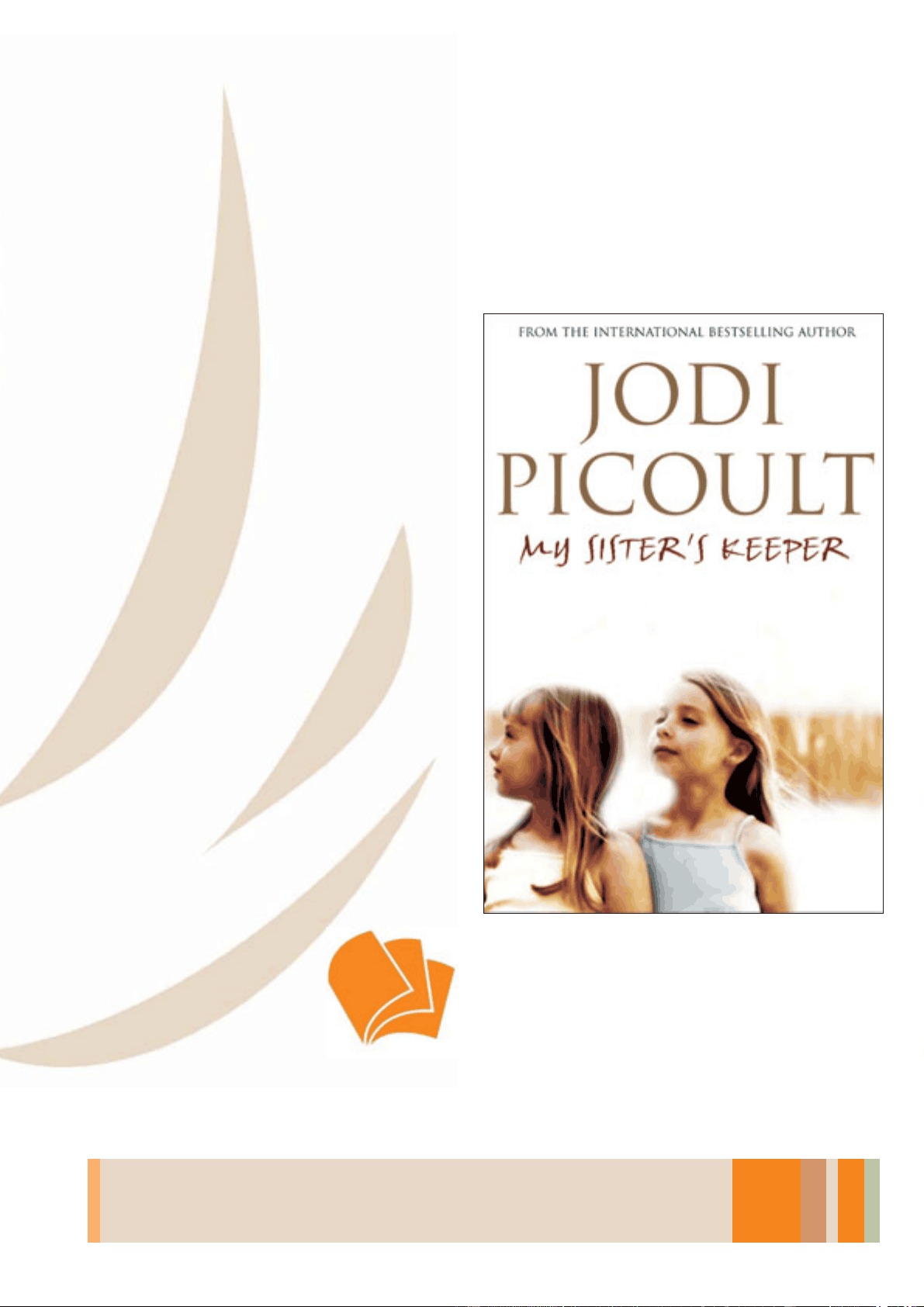
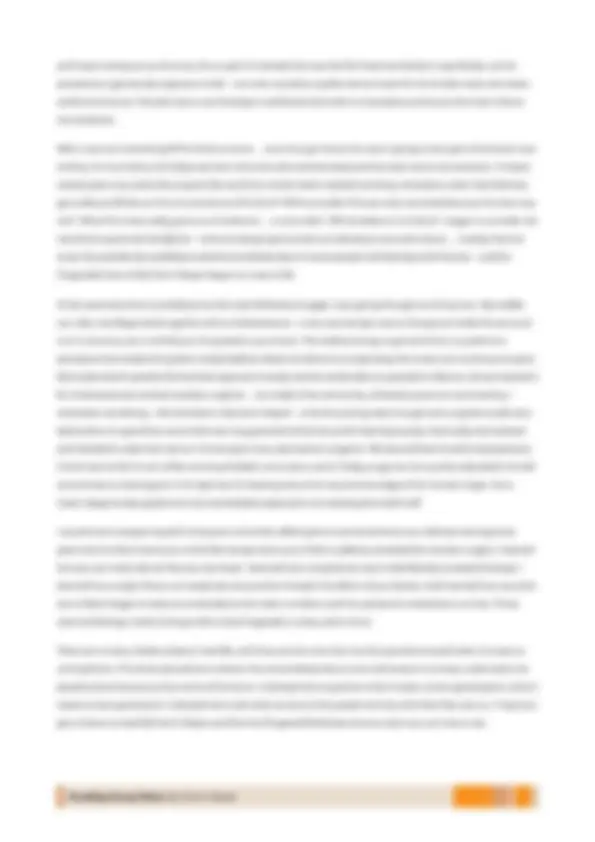
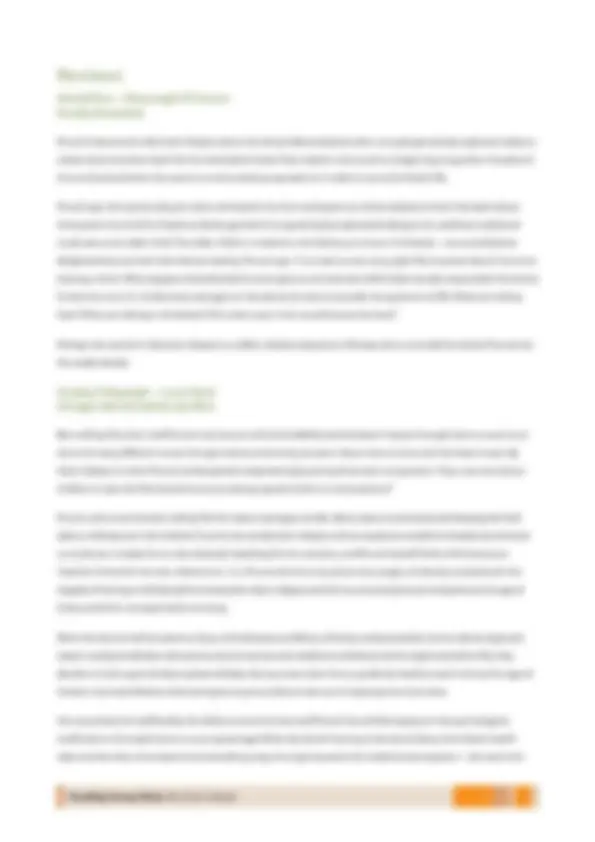
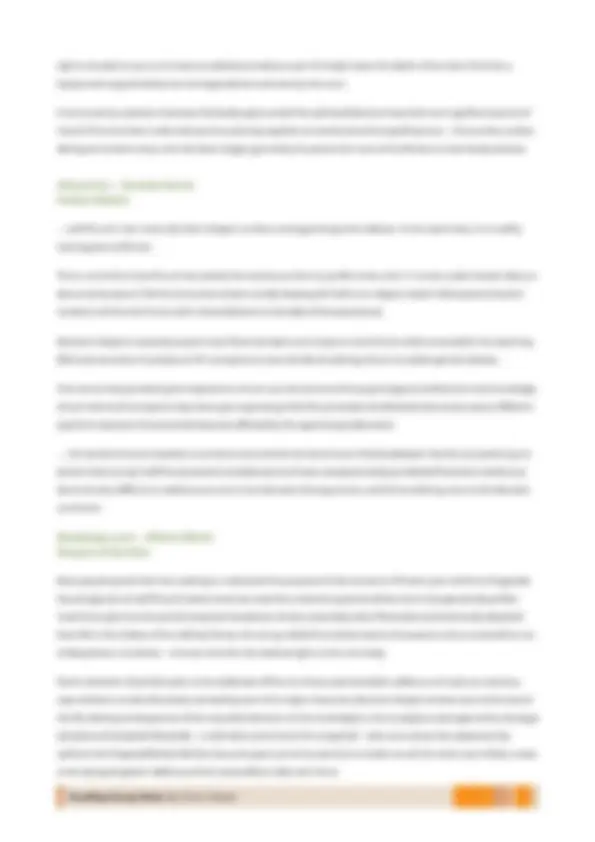
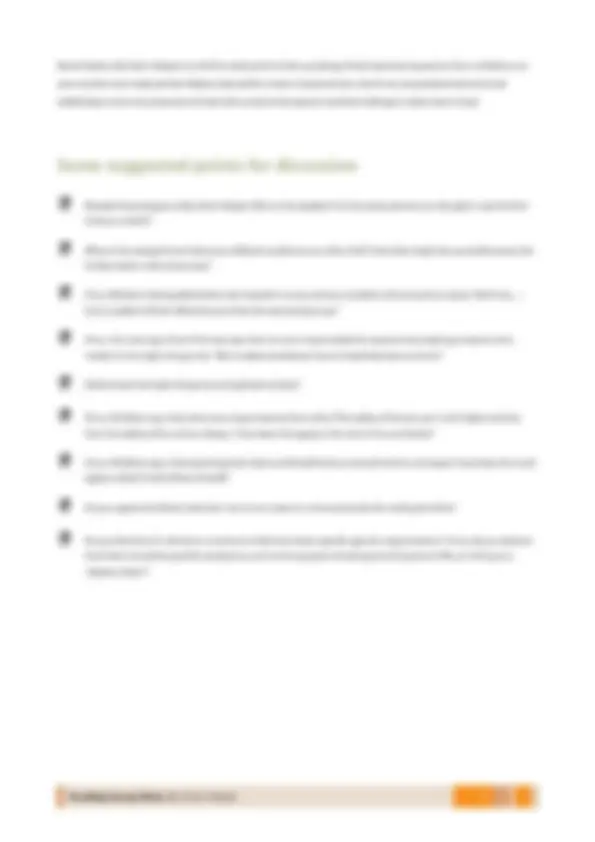
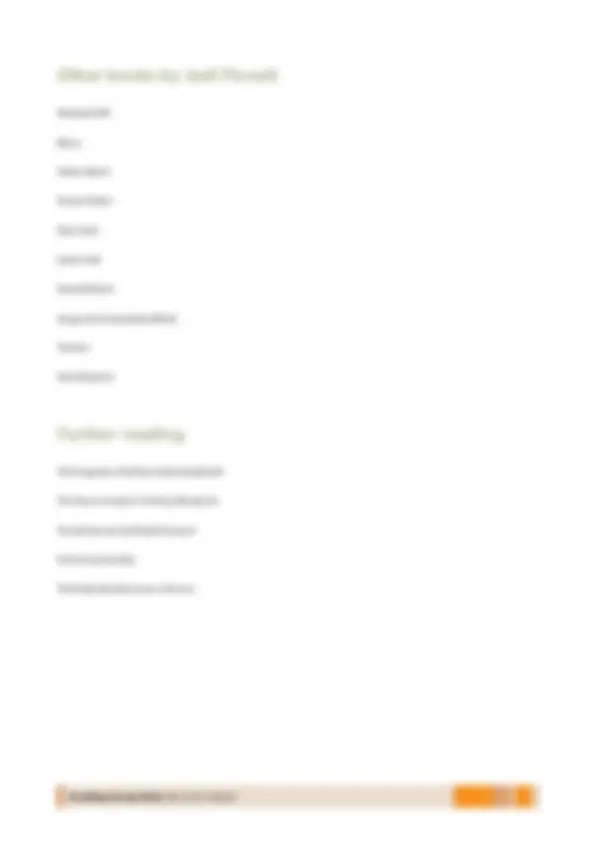


Study with the several resources on Docsity

Earn points by helping other students or get them with a premium plan


Prepare for your exams
Study with the several resources on Docsity

Earn points to download
Earn points by helping other students or get them with a premium plan
Community
Ask the community for help and clear up your study doubts
Discover the best universities in your country according to Docsity users
Free resources
Download our free guides on studying techniques, anxiety management strategies, and thesis advice from Docsity tutors
My Sister’s Keeper is a novel by Jodi Picoult about the ethical dilemma faced by a couple who genetically engineer a baby to create a bone marrow match for their terminally ill daughter. The novel explores the emotional and moral complexities of the situation through the perspectives of the parents and the genetically engineered child, Anna, who begins to question her role in the family and her desire to live her own life.
What you will learn
Typology: Study notes
1 / 9

This page cannot be seen from the preview
Don't miss anything!






About Jodi Picoult
Jodi Picoult, 37, is the bestselling author of eleven novels: Songs of the Humpback Whale (1992), Harvesting the Heart (1994), Picture Perfect (1995); Mercy (1996), The Pact (1998); Keeping Faith (1999), Plain Truth (2000), Salem Falls (2001), Perfect Match (2002), Second Glance (2003) and her newest novel, My Sister’s Keeper (2004). In 2003 she was awarded the New England Book Award for Fiction.
She was born and raised—happily—on Long Island, something that she believed at first was a detriment to a girl who wanted to be a writer. ‘I had such an uneventful childhood that when I was taking writing classes at college, I called home and asked my mother if maybe there might have been a little incest or domestic abuse on the side that she’d forgotten about,’ Picoult recalls. ‘It took me a while to realise that I already did have something to write about—that solid core of family, and the knotty tangle of relationships, which I keep coming back to in my books.’
Picoult studied creative writing with Mary Morris at Princeton, and had two short stories published in Seventeen maga- zine while still a student.‘The first time the editor called me to say she wanted to pay me for something I’d written,’ Picoult says,‘I immediately called my mom and said, “I’m going to be a writer!” “That’s great,” she said. “Who’s going to support you?” ’ Realism—and a profound desire to be able to pay the rent—led Picoult to a series of different jobs following her graduation: as a technical writer for a Wall Street brokerage firm, as a copywriter at an ad agency, as an editor at a textbook publisher, and as an 8th grade English teacher—before entering Harvard to pursue a master’s in education. She married Tim Van Leer, whom she had known at Princeton, and it was while she was pregnant with her first child that she wrote her first novel, Songs of the Humpback Whale.
Picoult says,‘I found out it was going to be published just before my son was born, and I had this completely idealistic vision of him sitting at my feet, cooing, while I continued to write books. Needless to say, it didn’t quite work out that way.’ Her struggle to balance motherhood and her own career formed, in part, the basis for her second novel, Harvest- ing the Heart. For a few years, she was either delivering a book or a baby. Now, she’s happy to be prolific solely in her writing—and admits wholeheartedly that she moonlights as a writer, but she’s really a mom. ‘It took me a while to find the balance,’ Picoult says,‘but I’m a better mother because I have my writing—and I’m a better writer because of the experiences I’ve had as a parent that continually remind me how far we are willing to go for the people we love the most.’
She and Tim and their three children live in Hanover, New Hampshire with a dog, a rabbit,two Jersey calves and the occasional Holstein.
On writing My Sister’s Keeper —Jodi Picoult
My Sister’s Keeper was not a book I ever planned to write. In fact, I was working on a different book— Second Glance— when the idea first surfaced. I was learning about pre-implantation genetic diagnosis—the procedure that allows a couple to have embryos screened for undesirable genes like those that produce haemophilia or sickle-cell anaemia—
Reviews
Picoult’s latest work is My Sister’s Keeper , about the ethical dilemma faced when a couple genetically engineer a baby to create a bone marrow match for her terminally ill sister. That creation is Anna, who is beginning to question her place in the world and whether she wants to continue being operated on in order to save sister Kate’s life.
Picoult says she is personally pro-stem cell research, but her novel grew out of the realisation that it has been about three years since the first American family gave birth to a genetically engineered sibling so his umbilical cord blood could save a sick, older child.‘The older child is in remission, the little boy is a hero in his family—mum and dad are delighted because both their kids are healthy,’ Picoult says. ‘It’s a total success story, right? But my brain doesn’t function that way. I think ‘What happens if, God forbid, his sister goes out of remission. Will he feel morally responsible? And what if, when he turns 13, 14, like every teenager on the planet, he starts to ponder the questions of life: What am I doing here? What am I doing in this family? If his sister wasn’t sick, would he even be here?’
Perhaps the mother in My Sister’s Keeper is a selfish, misdirected person. Perhaps she is a wonderful mother. Picoult lets the reader decide.
Best-selling US author Jodi Picoult truly loves an ethical minefield; and she doesn’t tiptoe through them so much as to show the many different routes through and around a tricky situation. Never more so than with her latest novel, My Sister’s Keeper , in which Picoult tackles genetic engineering by posing the knock-out question: ‘If you use one of your children to save the life of another, are you being a good mother or a very bad one?’
Picoult, who wrote the best-selling The Pact (about teenage suicide), Mercy (about euthanasia) and Keeping the Faith (about child abuse in the Catholic Church), has set My Sister’s Keeper with an explosive world full of medical and moral conundrums. It makes for an uber-dramatic backdrop for her narrative, and Picoult herself thinks of this book as a ‘Sophie’s Choice for the new millennium.’ In it, Picoult tells the story, from every angle, of a family wracked with the tragedy of having a child dying from leukaemia. Kate is diagnosed with acute promyelocytic leukaemia at the age of three, and she is not expected to live long.
When the doctors tell her parents, Sara, a retired lawyer, and Brian, a fireman and paramedic, that an identical genetic match could provide Kate with precious bone marrow and umbilical cord blood, which might extend her life, they decide to try for a genetically engineered baby. Along comes sister Anna, a perfectly healthy match who, by the age of thirteen, has had a lifetime of donating leucocytes and bone marrow to help keep her sister alive.
Her very existence is defined by her ability to save her sister and Picoult has a brilliant grasp on the psychological ramifications this might have on a young teenager. When faced with having to donate a kidney when Kate’s health takes another dive, Anna takes the extraordinary step of suing her parents for medical emancipation—she wants the
right to be able to say no to invasive medical procedures, even if it might mean the death of her sister. She hires a lawyer, and is appointed by her own legal adviser and carer by the court.
It’s an enormous decision that tears the family apart, and all the splintered factions have their own significant points of view. So Picoult writes in alternating voices, piecing together an emotional and compelling story—Anna writes, as does delinquent brother Jesse, who has been largely ignored by his parents for most of his life due to other family dramas.
... Jodi Picoult’s new novel, My Sister’s Keeper , is a fierce and agonising ethics debate. At the same time, it is a swiftly moving piece of fiction.
This is not the first time Picoult has tackled the hard issues. She is a prolific writer, with 11 novels under her belt. Mercy is about euthanasia; in The Pact she writes of teen suicide; Keeping the Faith is on religion; Salem Falls explores the phe- nomenon of the witch hunt; and in Second Glance it is the idea of the paranormal.
My Sister’s Keeper is a bravely topical novel. There has been one instance in the US of a child conceived for his matching DNA and, recently in Australia, an IVF conception to save the life of a sibling with an incurable genetic disease.
One cannot help pondering the implications of such use of science and the psychological ramifications that knowledge of such a form of conception may have upon a growing child. Picoult tackles the dilemma from every stance. Different type fonts represent the assorted characters affected by this agonising predicament.
... the narrative moves towards a courtroom scene where the moral issue is finally debated. How far can parents go to protect their young? Jodi Picoult presents multiple points of view, compassionately pondered. The book is hard to put down but also difficult to read because one is riven between the arguments, and still wondering, even at the dramatic conclusion.
Most people spend their lives seeking to understand the purpose of their existence. Thirteen-year-old Anna Fitzgerald, the protagonist of Jodi Picoult’s latest novel, has never for a moment questioned hers: she is the genetically perfect ‘match’ brought into the world to keep her leukaemia-stricken sister, Kate, alive. Physically and emotionally depleted from life in the shadow of her sibling’s illness, the strong-willed Anna lashes back at the parents who conceived her out of desperation, not desire—she sues them for the medical rights to her own body.
Poetic treatment of prickly topics is the trademark of Picoult, whose past bestsellers address such topics as statutory rape and teen suicide. Alternately narrated by each of its major characters, My Sister’s Keeper revolves around Anna and the life-altering consequences of her very adult decision. As the novel begins, the courageous teenager enlists the legal assistance of Campbell Alexander—a relentless cynic known for suing God—who soon serves the subpoena that splinters the Fitzgerald family. Mother, Sara, who gave up her law practice to render round-the-clock care to Kate, comes to her dying daughter’s defence, while husband Brian sides with Anna.
Kate, who has leukaemia, with stem cells, blood and bone marrow. But when Kate’s organs begin to fail and Anna’s parents expect her to donate a kidney, she balks. Fed up with spending time in the hospital for medical procedures that are not in her best interest or for her benefit, and tired of living in her sister’s shadow, Anna decides to sue her parents for ‘medical emancipation’, or the right to make decisions about her own body.
Denying Kate a kidney, Anna knows, will lead to her death. But why should she submit to major abdominal surgery and have to make do with only one kidney? On the other hand, what kind of monster would let her sister die? Picoult explores the emotional, legal and moral dimensions of Anna’s dilemma from alternating perspectives—Anna’s, her parents’, her brother’s, her lawyer’s, her guardian’s—giving considered balance to both sides of the lawsuit.The novel’s shifting points of view also help to add depth to a cast of characters who would otherwise seem rather thinly drawn. Without this device, Anna’s mother could become a one-sided study in shrill desperation, and Anna’s lawyer, Campbell, could be mistaken for a base egomaniac.
In fact, Campbell emerges as the most appealing of the lot. A good old boy who never grew up, he is a scene stealer and a sarcastic wit. He’s also a tough nut to crack. Campbell is a closet epileptic, and he steers conversation partners away from registering his condition by deflecting questions about his seizure-alert dog with tall tales: ‘I have an iron lung... and the dog keeps me from getting too close to magnets’; ‘I have Ebola... he’s tallying the people I infect’; ‘I have an irregular heartbeat and he’s CPR certified’; ‘He translates for my Spanish-speaking clients’; ‘He chases ambulances for me.’
Campbell also figures in an entertaining subplot, a romance with Anna’s court-appointed guardian, Julia, Campbell’s high-school sweetheart. Julia, a persuasive do-gooder, is as serious as Campbell is frivolous. She’s useful, too—from her position as a children’s advocate, she can isolate the crux of the case in a way the others, too close to the action, cannot: ‘Traditionally, parents make decisions for a child, because presumably they are looking out for his or her best interests. But if they are blinded, instead, by the best interests of another one of their children, the system breaks down. And somewhere, underneath all the rubble, are casualties like Anna.’ Picoult’s other characters are less convincing. Anna’s gentle father, Brian, a fire-fighting hero and armchair astronomer, is almost too good to be true, and Picoult stretches noticeably to make both his job and his hobby symbolically relevant to the story. Anna’s brother, Jesse, is a poster child for self-destructive behaviour. Kate, finally, is as weak and wispy on the page as she’s supposed to be in life.
Picoult is at her best, and most moving, when writing from the perspective of Anna’s mother, Sara. Exhausted by Kate’s recurrent illness, Sara is often on edge and overwhelmed. But she is also focused: her tenacity, her vigilance and her support during Kate’s aggressive cancer treatments all give Kate a reason to live. Mothering takes on new meaning, and the mundane becomes surreal: Kate’s goldfish, according to the oceanologist Sara consults in a desperate effort to save the pet’s life, requires bottled water, and the mere thought of buying Jesse a new pair of soccer cleats after Kate relapses seems ‘downright obscene.’
Picoult uses the present tense throughout the novel, which lends an appropriate breathlessness to the narrative—after all, Kate doesn’t have long to live—and encourages the reader to charge eagerly through the story. Unfortunately, the characters themselves are overwhelmed by the galloping pace. Indeed, it is not Anna, her parents, or even Campbell, but a bittersweet turn of events—one last plot twist, a surprise ending—that solves the dilemma at hand.
Nevertheless, My Sister’s Keeper is a thrill to read, and it winds up asking a final, important question: Can a child born to save another ever really be free? Babies selected for certain characteristics, like Anna, are predestined to be tied indefinitely to the circumstances of their birth, and to their parents and their siblings in need. Aren’t they?
Some suggested points for discussion
! Reread the prologue to My Sister’s Keeper. Who is the speaker? Is it the same person you thought it was the first time you read it?
! What is the metaphorical relevance of Brian’s profession as a fire chief? And what might be a possible reason for his fascination with astronomy?
! On p. 98, Kate is being admitted to the hospital in a very serious condition. She mouths to Jesse,‘Tell Anna.. .’ but is unable to finish. What do you think she was trying to say?
! On p. 122, Julia says, ‘Even if the law says that no one is responsible for anyone else, helping someone who needs it is the right thing to do. ’Who understood better how to ‘help’ Kate, Sara or Anna?
! Did Anna do the right thing, honouring Kate’s wishes?
! On p.142, Brian says that when rescuing someone from a fire,‘The safety of the rescuer is of a higher priority than the safety of the victim. Always.’ How does this apply to his role in his own family?
! On p.144, Brian says,‘Like anything that’s been confined, fire has a natural instinct to escape.’ How does this truth apply to Kate? And to Brian himself?
! Do you agree with Brian’s decision not to turn Jesse in to the authorities for setting the fires?
! Do you feel that it’s ethical to conceive a child that meets specific genetic requirements? If not, do you believe that there should be specific exceptions, such as the purpose of saving another person’s life, or is this just a ‘slippery slope’?